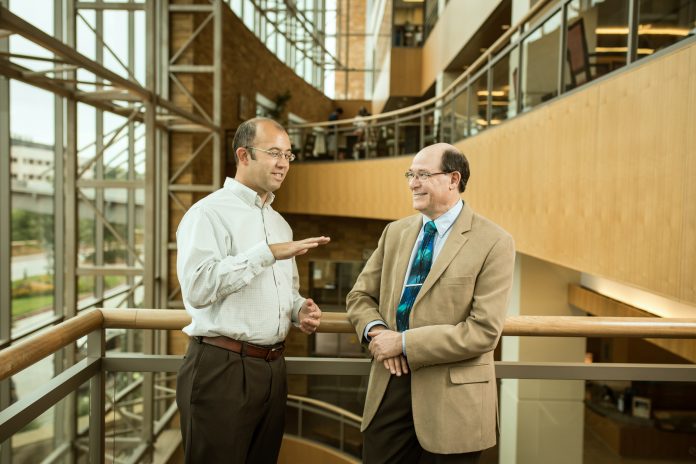
An experimental brain cancer compound developed at the Oklahoma Medical Research Foundation is being used in a new study that could considerably extend the lives of glioblastoma patients.
In a study at the University of Oklahoma’s Stephenson Cancer Center, the OMRF compound OKN-007 is being combined with Temodar, the current standard-of-care medication for glioblastoma. Researchers hope to learn if it can enhance Temodar’s effectiveness for a longer period of time. Glioblastoma is an aggressive form of brain cancer with no cure. Even with surgery and chemotherapy, patients typically live only 12-18 months after diagnosis. Only 1 in 20 glioblastoma patients will live five years.
Temodar has been proven to work, but in most cases, patients tend to become resistant to the drug after approximately three months.
In combination, OKN-007 allows Temodar to remain effective for longer with less resistance, thus extending treatment well beyond the three-month window, perhaps indefinitely, said OMRF Vice President of Technology Ventures Manu Nair.
“Several additional months of treatment with Temodar can dramatically prolong the lives of patients and keep them from enduring other grueling treatments that can compromise their immune systems,” said Nair.
OKN-007 had been in trials to determine safety and efficacy since 2013. The compound was developed by OMRF scientists Rheal Towner, Ph.D., and Robert Floyd, Ph.D., as a novel therapeutic that dramatically decreased cell proliferation (spread) and angiogenesis (formation of new blood vessels), and it turned on the process of removing damaged cells so they can’t become cancerous.
“OKN-007 has been promising, but until now, it was only used in very late-stage cancer where patients are out of other options,” said Nair. “By combining it with Temodar, it offers a longer, more effective treatment regimen.” The new study is led by James Battiste, M.D., Ph.D., medical director of the Comprehensive Brain Tumor Program at the Stephenson Cancer Center.
An estimated 12,000 Americans are diagnosed with glioblastoma each year, according to the American Brain Tumor Foundation. The standard treatment regimen involves surgery to remove as much of the tumor as possible, followed by radiation and chemotherapy. Still, the tumor almost always grows back.
“By combining Temodar and OKN-007 following initial surgery to have the brain tumor removed, we see potential for these patients to added benefit from an existing drug already proven to work, but for a much longer period of time,” said Nair.












